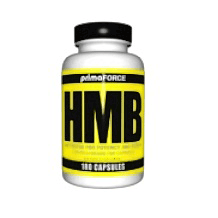SNI: Below are listed 5 supplements; tell us in 100 words if you think it is worth taking, why, and at what dose.
Dr. Wilson:
HMB works by speeding repair of damaged muscle, increasing fat loss and preventing muscle loss during extreme dieting, aerobic exercise, and aging. HMB consistently works in non-athletes because it’s easy to damage their muscles. Studies in athletes using HIGH INTENSITY / HIGH VOLUME training show increases in muscle size and strength. Studies in athletes with inadequate training programs don’t work for obvious reasons. So if you are untrained use it. If you are an athlete and your training program is legitimate and periodized, then I recommend it. For muscle mass, take at least 3 grams. For fat loss, WE DON’T KNOW the ideal dose, but 3-6 grams does work.
2. EAAs
The EAAs determine overall “protein quality.” In fact, research shows that the EAAs alone stimulate as much protein synthesis (muscle building) as a whole protein. Diets low in EAAs result in lower gains in muscle mass and strength than diets high in EAAs. Supplementing with EAAs may be beneficial. One study by Paddon-Jones et al. found supplementing with an EAA supplement in between meals drastically increased protein synthesis throughout a day. I’d recommend 10-15 grams per serving. Foods highest in EAAs are meat, egg, and dairy products. Selection of these food choices will result in greater gains.
3. Leucine
Leucine is the king of amino acids. In fact of the EAAs, leucine seems to be the actual TRIGGER for protein synthesis. My brother, Gabriel Wilson, and colleague, Layne Norton, have shown that choosing foods higher in leucine results in greater muscle mass. Two to three grams of leucine maximize protein synthesis. Meats contain about 8 % leucine, eggs about 9 %, and dairy about 10-12%. Athletes can base protein consumed each meal on its leucine content. For example whey (11 % leucine) and chicken (7.5 % leucine) would require about 18-26 and 27-35 grams, respectively, to maximize protein synthesis.
4. Glutamine
Glutamine is the most abundant free amino acid in our body. Individuals who train ALL OUT (not those who bring cell phones to the gym and never squat) may benefit from it. Glutamine has been shown to decrease the incidence of reported infections and protects white blood cells (our immune cells) following exhaustive exercise. Additionally glutamine has been shown to increase muscle carbohydrate stores. Twenty-five grams a day during intense training cycles or when low carb dieting may be efficacious. I’d also recommend reading Dr. Jose Antonio’s recent article entitled “Glutamine’s a Friend of Mine.”
5. Taurine
The finding that taurine levels decrease during exercise has led sports nutrition scientists to study the amino acid. Taurine may protect muscle against exercise induced DNA damage and protein breakdown. Moreover Dr. Zhang et al. found that 7 days of taurine supplementation increased V02max and prolonged time to exhaustion while cycling. While Jay Hoffman found a taurine containing supplement-increased resistance training performance, it is unclear what its effects are alone. However, we do know that taurine increases force of isolated muscle fibers. Although the optimal dose is unknown, 6 grams a day has been effective.
SNI: Bonus question: If you could have superhero powers, what powers would you want and why?
Dr. Wilson: Ha ha! I have always wanted wolverine’s regenerative powers. Why? It’s simple, it would mean that I could easily train 20 times a day, and make gains each workout!
 Dr. Jacob Wilson, Ph.D. is a researcher and assistant professor in the department of health sciences and human performance at the University of Tampa, Tampa Fl. Jacob has published over 50 peer-reviewed papers, abstracts, and book chapters on sports nutrition, supplementation, and resistance training in athletic and clinical situations. His research has covered both the cellular and molecular responses to supplementation and nutrition, as well as the whole body changes in muscle size, strength, and power. Dr. Wilson is also a proud member of the International Society of Sports Nutrition, the National Strength and Conditioning Association, and President of Abcbodybuilding.com
Dr. Jacob Wilson, Ph.D. is a researcher and assistant professor in the department of health sciences and human performance at the University of Tampa, Tampa Fl. Jacob has published over 50 peer-reviewed papers, abstracts, and book chapters on sports nutrition, supplementation, and resistance training in athletic and clinical situations. His research has covered both the cellular and molecular responses to supplementation and nutrition, as well as the whole body changes in muscle size, strength, and power. Dr. Wilson is also a proud member of the International Society of Sports Nutrition, the National Strength and Conditioning Association, and President of Abcbodybuilding.com





Pingback: Top Supplements Explained - Who Needs Them & How Much | Storm Force Fitness - Guernsey Personal Trainer